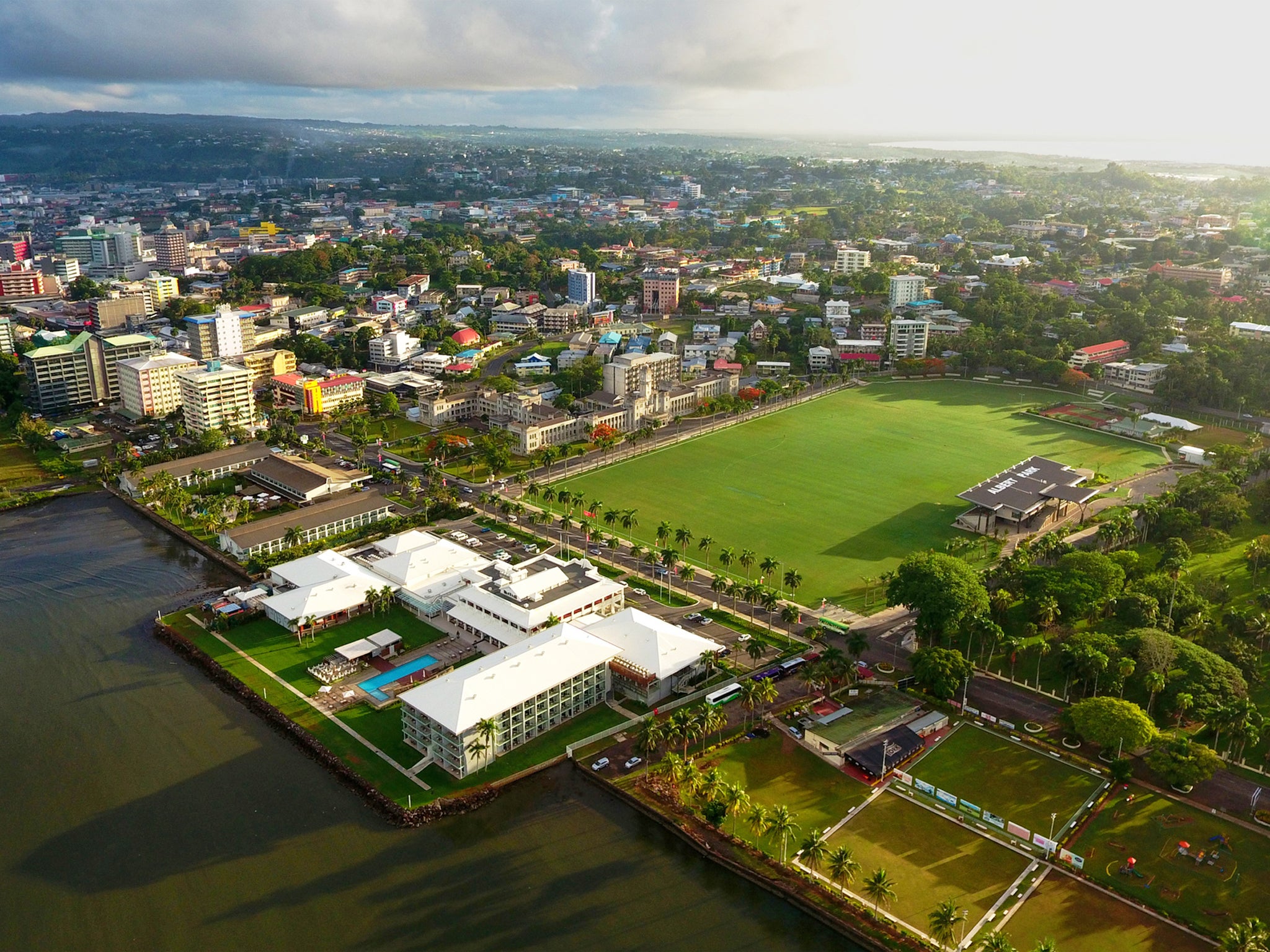University chief deported after blowing the whistle on cronyism and corruption
The students love their vice-chancellor but the Fijian government wants him gone. Mark Drummon on the power struggle at the top of the University of the South Pacific

At first there is a woman’s voice coming from the back of the house in the dead of night. Then there is repeated ringing of the doorbell. Other voices, male ones, are coming through the front door now; the voices are authoritative and increasingly impatient. Instructions are barked, telling those inside to open up. Fists bang the door. Soon plainclothes police officers are inside and shortly afterwards 63-year-old professor Pal Ahluwalia and his wife Sandy Price are forcibly escorted to the airport. The vice-chancellor of the most prestigious university in Fiji is being deported on the orders of the Fijian government.
The University of the South Pacific (USP) is pretty. Its main campus building in Fiji has a clean, modern design and is fronted by rows of palm trees. But behind the attractive facade and beneath a clear blue South Pacific sky, all hell is breaking loose. An internecine conflict has broken out. On one side stands the vice-chancellor, professor Pal Ahluwalia, who claims to have blown the whistle on mismanagement and malpractice at the university; opposing him are pro-chancellor Winston Thompson and the Fijian government, who say Ahluwalia is guilty of both breaking USP hiring protocols and of unspecified immigration violations.
Established in 1968, the USP is a regional university, owned and funded by 12 nations: the Cook Islands, Fiji, Kiribati, Marshall Islands, Nauru, Niue, Samoa, Solomon Islands, Tokelau, Tonga, Tuvalu and Vanuatu. Additional funding comes from regional partners such as Australia and New Zealand. The office of the chancellor, a largely ceremonial role, rotates every 12 months among the heads of state of the dozen aforementioned Pacific islands (Nauru president Lionel Aingimea is the incumbent). Governance is overseen by the USP council, which meets twice a year. A smaller executive committee, comprising 10 or so council members who hold senior positions at the university, can make decisions between the biannual full council meetings. This committee is headed by the pro-chancellor, which is a position of limited authority. The university’s chief executive is the vice-chancellor (VC).
Subscribe to Independent Premium to bookmark this article
Want to bookmark your favourite articles and stories to read or reference later? Start your Independent Premium subscription today.
Join our commenting forum
Join thought-provoking conversations, follow other Independent readers and see their replies